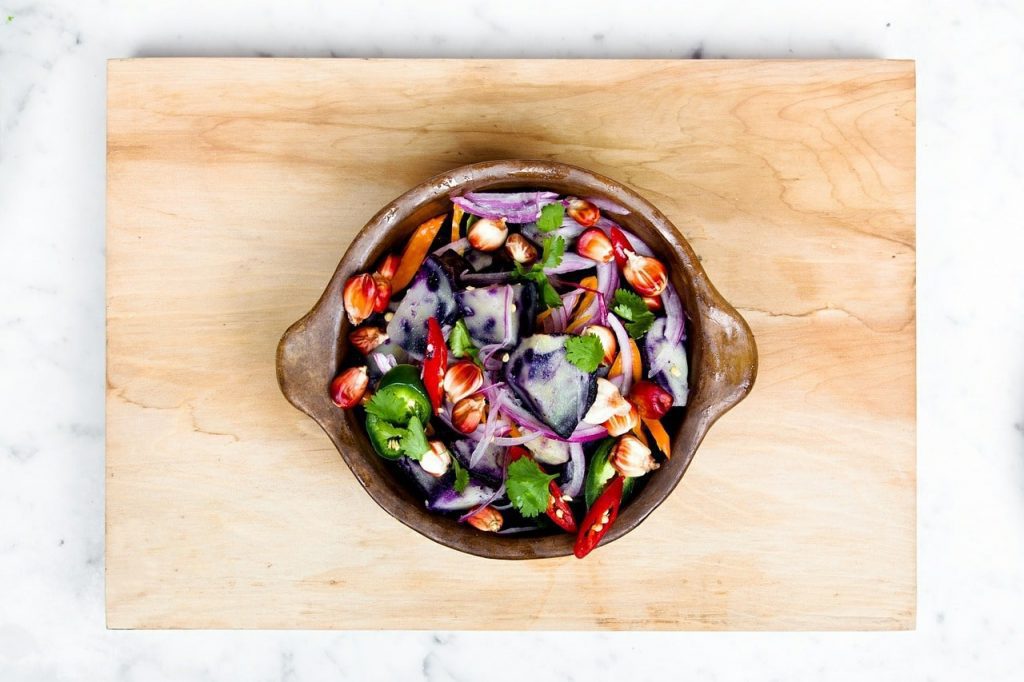
Low Carb Diet: 3 Reasons To Follow A Low Carb Diet
Due to the following reasons, you might want to follow a low carb diet:
- You may enjoy the types of food that you have to eat during the diet, and eating too many carbs make you feel bloated and heavy.
- You want to change your eating habits and follow a healthier lifestyle.
- You want to follow a diet plan that restricts the intake of carbs in order to lose weight.
Low Carb Diet: You may follow a low carb diet plan easily but if you have any medical condition, then you must consult your doctor before starting any diet.
Low Carb Diet: Most Popular Types Of Low Carb Diet
1. Low Carb Mediterranean Diet
Mediterranean diet is quite common among health professionals. In this diet, you have to eat traditional food from the Mediterranean region. There have been studies that prove that this diet aids in the prevention and management of type 2 diabetes, breast cancer, and heart diseases.
In a low carb Mediterranean diet, intake of foods with higher carbs such as whole grains is limited. Though there is no evidence that a low carb Mediterranean diet is better than other low carb diets, it may be better for reducing the risk of heart diseases.
2. Zero-Carb Diet
A zero-carb diet is a type of low carb diet in which the intake of carbohydrates is minimized to nearly zero. This diet only includes animal foods like eggs, fish, etc and there is no intake of carbohydrates in the body. There has been no proof that a zero carb diet is safe to follow but there is a case study in which 2 men in 1963, ate only animal foods for a year and after a year, they were still in good health. These pieces of evidence are few and far between, and anything like this must only be initiated under the advice of a medical health practitioner.

3. Eco-Atkins Diet
The eco-Atkins diet is the vegan version of the Atkins diet. In this diet, you only eat plant foods that have no carbs and only contain protein and fat, such as soy nuts, gluten, plant oils, etc. The eco-Atkins diet has a higher intake of carbs than the Atkins diet and a lower carbohydrate intake than a vegan diet. In a study, it was shown that the eco-Atkins diet is better than a vegan diet as it promotes more weight loss along with the lowering of risk of heart diseases.
4. Atkins Diet
Atkins diet is one of the best known low carb diets. In this diet, high carb foods are not consumed but the desired amount of fat and protein can be consumed. When the Atkins diet was founded it was believed to be unsafe but recent studies show that it is safe to follow this diet as long as there is an adequate intake of fiber in the body. The diet has 4 phases:
Phase 1
You consume only 20 g of carbs each day for 2 weeks.
Phase 2
You add nuts, fruits, and low carb vegetables to your diet.
Phase 3
When you are close to achieving the desired weight, increase the intake of carbs until the process of weight loss becomes slower.
Phase 4
You may eat healthy carbs as long as your body is able to tolerate them, without the gain in weight that you have lost.
The Atkins diet is known and has been popular for over 40 years.
5. Low-Carb Paleo Diet
The paleo diet is one of the most popular diets in the world. In this diet, you have to eat foods that were available in the Palaeolithic era. This diet encourages you to eat the foods from a different era as the makers of the diet believe that humans have evolved and they have adapted to unhealthy eating habits.
Also referred to as a caveman diet, this particular system of eating excludes all the processed foods. Thus ensuring that the practitioner consumes a diet filled with natural ingredients, which further results in a more efficient intake of nutrients.
Following the diet plan with foods that our ancestors ate, will be healthier. There have been small studies to prove that the Paleo diet can aid in weight loss and reduce the sugar level in the blood.
6. Low-Carb High-Fat (LCHF) Diet
As per the name, this diet is a very low carb diet along with healthy fats. It encourages the intake of processed foods. The recommended intake of carbs in this diet is 20 to 100 g per day. This diet contains foods like berries, nuts, dairy products, vegetables, healthy fats, eggs, fish and meat.
A complete opposite to paleo diet, the LCHF diet contains a high-quantity of processed foods that are loaded with food fats. The main purpose for such practice is to avoid glucose and use fats for energy instead. This is one of its main features that prevents the sudden rise in your body’s glucose level.

7. Ketogenic Diet
A Keto diet is like the LCHF diet. The aim of the keto diet is to reduce the intake of carbs to a minimum so that the body goes into a state known as ketosis. In the ketosis state, the level of insulin drops and the body ends up releasing a high amount of fatty acids from its fat stores. A number of these fatty acids are transferred to the liver which is then converted to ketones.
Ketones are molecules which are water-soluble and have the ability to provide energy to the brain. Hence, the brain depends on ketones for proper function and not on carbs. Keto diet has various versions and in some even the protein intake is restricted as too much protein reduces the production of ketones. The 2 common versions of the keto diet are:
Targeted Ketogenic Diet (TKD)
In this version, you have to add a small number of carbs around your workout routine.
Cyclical Ketogenic Diet (CKD)
In this version, you have to follow the ketogenic diet for 5-6 days in a week and for the remaining days, you eat a high-carb diet.
8. Traditional Low Carb Diet
This diet has no definition. It is simply a low carb diet in which the intake of carbs is highly restricted. This pattern of eating is lower in carbs and higher in proteins. Intake of grains, sugary drinks, potatoes, and high sugar junk food is restricted. The carb intake depends on the reason you are following the low carb diet.
Carb Intake
100 to 150 g: This carb intake is for maintenance of weight. With this amount of carbs, you can even eat fruits and some starchy vegetables such as potatoes.
50 to 100 g: This carb intake is for slow loss of weight. With this intake, you can eat vegetables and fruits as well.
Under 50 g: When the carbs are reduced to this amount, it means that you are working towards losing weight quickly.
Also Read: Top 10 Diets To Lose Weight
Low Carb Diet: Benefits Of A Low Carb Diet
Though carbohydrates are major macro-nutrients that our body requires for energy, it msut also be noted that its function can also be done by the increase of other nutrients such as proteins and fats. A low carb diet is also beneficial in other ways:
1. Increase In The Level Of Good Cholesterol
Low-carb diets are low in carbs but are high in fats. Fat is required by the body to increase the level of good cholesterol as higher the good cholesterol, lower is the risk of heart diseases.
2. Aids In Weight Loss
Low carb diets may be more effective in loss of weight for short term than the low-fat diets. But you need to remember that not all fat is the same in the body. It is easier to lose weight if you restrict the intake of calories in the body.

3. Prevention/Improvement Of Serious Health Conditions
Since low carb diets help you to shed the excess weight from your body, hence it may also be able to prevent or improve some health conditions such as cardiovascular diseases, high blood pressure, diabetes, metabolic syndrome, etc.
Low Carb Diet: Risks Involved With a Low-Carb Diet
If the intake of carbs is suddenly reduced, you may see some temporary health effects in the body. A low carb diet must not be followed for a long time. There should be some gap when you plan to follow the diet again.
Following the low carb diet regularly may lead to mineral and vitamin deficiencies as these diets don’t provide the body with all the essential nutrients. Following are the side effects of a low carb diet, if not followed properly, especially by beginners:
- Constipation
- Diarrhea
- Skin rash
- Fatigue
- Muscle cramps
- Weakness
- Bad breath
- Headache
In conclusion, following a low-carb diet is not a bad idea. But you must select the food items with healthy unsaturated fats and healthy proteins. If you wish to follow a low-carb diet, select the one that suits your lifestyle the most because it is not healthy for the body if you make drastic changes all at once.











